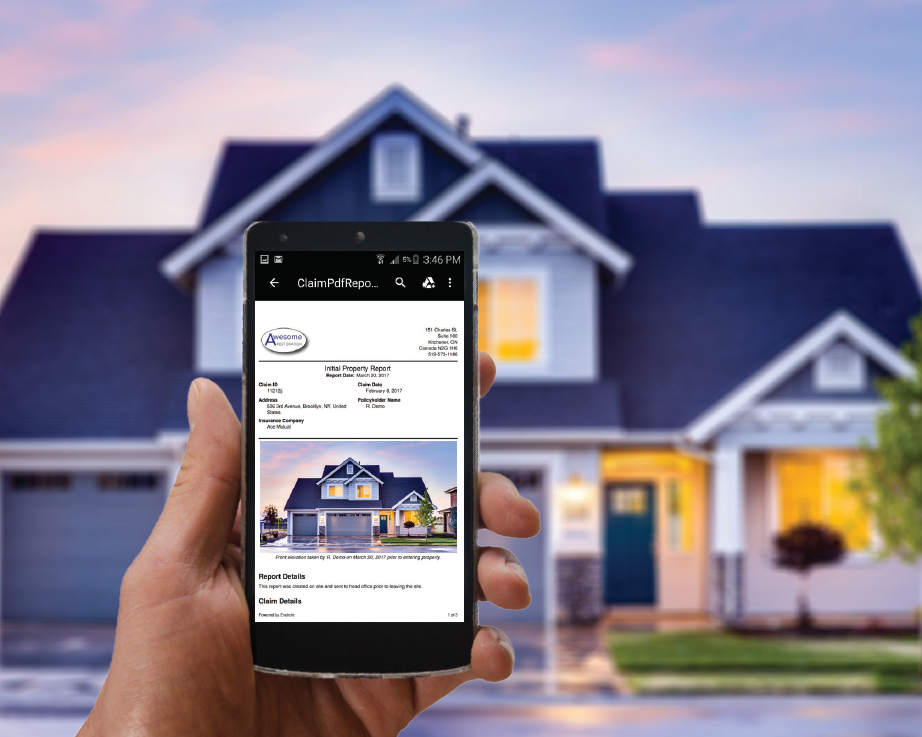Nashville insurance insight: Easy ways to keep a home inventory
/
A very important and oft-overlooked way to make your life easier, in the event of an insurance claim in Nashville: creating and maintaining a home inventory.
Whether you have homeowners insurance or renters insurance, an inventory ensures that a) you know what you have, and what you might be missing, b) you’ve documented pertinent details that could help law enforcement find your stuff and c) your insurers can access that same detailed info in the event of a claim. That tends to make a claim move faster, and more accurately.
Secondary benefit, too: With thorough documentation of all your belongings and valuables, you’ll be able to make sure you’re not under-insured. (Always more likely if you have particularly valuable stuff — anything from antiques to jewelry to high-tech tools.)
Think of it this way: If you’re home (or when you get home), look around your living room at all your electronics, your guitars and computers and stereo equipment. If it all disappeared in a flash, would you remember the brands, the models, the serial numbers off the top of your head? How confident are you that you wouldn’t miss anything if you had to write out a comprehensive list of all your belongings, while under emotional strain?
It’s a tedious exercise to document a whole house worth of stuff, but I strongly encourage it, not just as an independent insurance agent, but as a Nashville neighbor..
We’re failing at the inventory task
I bring all this up because a major percentage of Americans are skipping this step, and making insurance claims harder on themselves and their insurer. According to the Insurance Information Institute’s most recent polls, only about 50 percent of homeowners had an updated inventory, or an inventory at all.
We were doing a little better in the South, at about 57 percent, but that’s still a lot of people who don’t have a clear handle on what’s in their home.
If you’re my client (or my soon-to-be client), I’m going to do everything I can to make sure you’re covered thoroughly, and that any claims you make are as painless as possible. Helping you pull a home inventory together is an important part of the latter.
Some guidance on creating a home inventory
Here’s how I’d recommend moving forward: First, grab some home-inventory pointers from the Insurance Information Institute, an organization that knows pretty much all there is to know about insurance, insurers and insured people.
They have a helpful checklist that’ll guide you through the process, from starting your inventory to updating it. Well worth a read and a bookmark; it can help you move step by step through getting the task started, and done.
Then, check out some tools that’ll make it easier. If you’re technology-averse, there’s always the option of scribbling down details in a notebook, and the primer from the III can help you sort out what to document. But using home-inventory software or an app not only makes things easier on the front end, it makes keeping things updated simpler, and ensures that your info is backed up.
A few tools that I like:
Starting simple: You can download a Home inventory Excel template to keep track of the basics and of their value. It has rows laid out for pertinent details, so by filling it out, you should have all the basics covered. More info/to grab a Home inventory template here.
Sortly is an organization app with a bunch of different functions, but one of the things it can help with is home inventory — you can list, photograph and organize inventory info, and if you need to, export everything for insurers. With their free option, you can add up to 100 items and use a single device; with their Plus subscription ($4.99 a month), you can go deeper, with unlimited items and multiple devices, and access features that make things easier to set up and share, like barcode scanning and Dropbox exporting.
Encircle has lots of tools for pros juggling a mess of details — property managers, restoration contractors and the like — so naturally, their home-inventory documentation app does a good job of simplifying the process of collecting, sorting and organizing a lot of data. You can organize by room, save photos and details and quickly export reports if you ever need to.
Hope this offers a little food for thought and some direction. If you ever have any questions about creating a home inventory — or about home insurance, renters insurance or other kinds of insurance coverage — I’m always happy to help. Call or email Tucker Coverage here.






